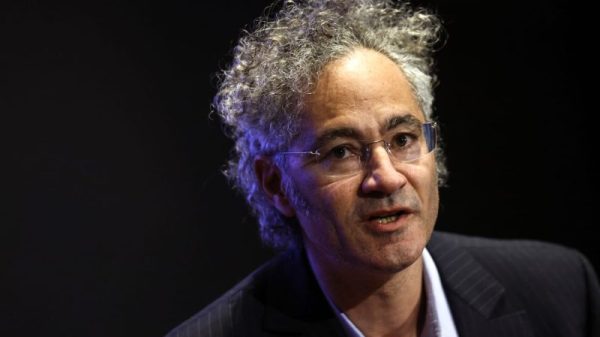
Most weeks, the nonfiction bestseller lists have one or more self-improvement books promising specific techniques you can use to be healthier, more productive, happier.
Since almost any technique will work for some people, a well-written self-improvement book can quickly raise an army of evangelicals to sing its praises. Since it is also true that no technique will work all the time for all people, there is great demand for the next new “best way,” which, after its day in the spotlight, will fade into oblivion. Yet, as G. K. Chesterton wrote, “It isn’t that they can’t see the solution. It is that they can’t see the problem.” A deeper problem is that techniques are only bandages; they do not address our deeper problems.
Great moral philosophers have always encouraged us to look at ourselves in the mirror to see our problems instead of looking outside of ourselves. The problems we diagnose are often with the world, another person, or a group. We are sure the source of our upset comes from what someone else said or did. We never seem to notice that while the characters in our life may change, we are the consistent thread throughout all our troubles.
In his The Theory of Moral Sentiments, Adam Smith pointed us to the underlying problem. Smith explained that “self-deceit” is the “fatal weakness of mankind” and “the source of half the disorders of human life.”
Suffering a physical disorder, we may find the cause and remedy well-diagnosed, and few would resist, for example, a physician setting a broken arm. But self-deceit is a mindset disorder. If we are unwilling to accept the diagnosis, a mindset disease is incurable and spreadable.
Others, having engaged in their own acts of self-deceit, are ready to collude with us in a downward spiral of self-deception. The results of this plague of self-deceit can be war (as nations aggress against others), destroyed economies (as arrogant planners cannot recognize the limits of their knowledge), and attacks on free speech (as individuals demand censorship of ideas different from their own).
Smith observed why our self-deceit can be so lasting. Simply, “It is disagreeable to think ill of ourselves.” We are sure we are right, and if our certainty makes us miserable, so be it. ‘Tis better to be right than happy, seems to be a code of living many of us have adopted.
Stubbornly, we don’t want to see ourselves the way a morally neutral observer would see us. Along with our self-deception comes the resistance to accepting that we have a problem. Worse, the choice to fool ourselves may be purposeful. We may want to pose as an innocent victim to eschew responsibility for our decisions.
Contemporary philosopher C. Terry Warner provides some of the most leveraged ideas for those eager to overcome self-deceit. In a collection of academic papers published by the Arbinger Institute, the Oxford Papers, Warner lays out the intellectual foundations of his theory of self-deception.
The Arbinger Institute, founded by Warner, has drawn out the practical implications of Warner’s theory in a series of bestsellers: Leadership and Self-Deception, The Anatomy of Peace, and The Outward Mindset. In their introduction to the Oxford Papers, the Arbinger Institute writes, “we humans are in large part self-deceived about what kind of beings we are, why we act as we do, and the quality of living available to us if we can bring our self-deceptions to an end.”
Warner tackles the issue at the heart of self-deception: “We regard our emotion as a condition provoked or aroused in us—’You are making me angry’—or as a condition that has befallen us—’I think it’s her son’s rebelliousness that’s saddened her so profoundly.’”
Warner explains that the angry person who sees themselves as a victim has reversed cause and effect. “[B]eing caused to be angry” is not merely “responding to a threat wholly independent of her will.” In summary, Warner writes “We present ourselves as ‘only responding to the circumstances,’ as ‘only reacting to what is being done to us.’”
Warner’s cure requires some bitter medicine as we uncover our own self-deceit. Yet, the treatment turns sweet; under all our caked-on mud, the best of our human nature is revealed beneath our self-deception.
What moral philosophy could be more helpful than that of Smith and Warner, which reminds us we have a mind that can make a different choice?
When we are self-deceived, we mentally justify our thoughts and behaviors. We construct what we think is airtight justification for our misconstrued interpretation of reality. Smith observes,
Rather than see our own behaviour under so disagreeable an aspect, we too often, foolishly and weakly, endeavour to exasperate anew those unjust passions which had formerly misled us; we endeavour by artifice to awaken our old hatreds, and irritate afresh our almost forgotten resentments: we even exert ourselves for this miserable purpose, and thus persevere in injustice, merely because we once were unjust, and because we are ashamed and afraid to see that we were so.
Our desire to protect our self-deception causes us to double down. The worse we feel, the more we attribute our feelings to other people and circumstances. Notice how that gets us off the hook, lets us feel sorry for ourselves, and perversely luxuriate in self-deceit.
Self-deceit is bad enough when it causes us to suffer and fail to live up to our potential. Worse still, our self-deceit may actively lead us to aggress against others. Consider a recent poll of college students which found 48 percent were willing to apply the death penalty for offensive speech. Students’ self-deception—that mere words harm them—has now been elevated from a threat to their own fulfillment to a threat that menaces the lives of others. Such behavior is not motivated by virtue, as the self-deceived present it to be. Warner explains:
We deceive ourselves by adopting a self-deceiving rhetoric of moral conscientiousness and excuse—the rhetoric includes our avowals of emotion—and, by this means, presenting ourselves as morally justified.
If we are willing, there are limits to our self-deceit. No one, Smith believes, lacks access to the moral sense to overcome one’s “deformity of passions and affections.” Moral sense arises, writes Smith, as “reason, principle, conscience, the inhabitant of the breast, the man within, the great judge and arbiter of our conduct.”
“The great judge” within each of us Smith calls the “impartial spectator,” continuing, “It is from him only that we learn the real littleness of ourselves, and of whatever relates to ourselves, and the natural misrepresentations of self-love can be corrected only by the eye of this impartial spectator.”
As we listen to our inner voice, we learn to abhor the “deformity of injustice” and “the love of what is honourable and noble, of the grandeur, and dignity, and superiority of our own characters” comes forward. The inner voice is never silent, but our willingness to listen varies a great deal.
When we are in the grips of self-deception, we are resistant to considering the needs of others. We fool ourselves into believing others deserve how we treat or think about them.
Worse than simply refusing to see our self-deceit, we feel morally justified in transgressing against others. Smith was right, self-deceit is responsible for much of the suffering of humanity.
The more we thicken the walls of our self-deceit, the more we obstruct the reception of the urges, impulses, and prompts coming from the inner “impartial spectator.” It is difficult to look directly, without resistance, at our mindset of self-deception. Smith instructs us to be “bold” and “not hesitate to pull off the mysterious veil of self-delusion, which covers from [our] view the deformities of [our] own conduct.” The rewards of pulling back that veil are great; no longer blinded by self-deceit, our willingness to look within restores the freedom to choose differently.
























